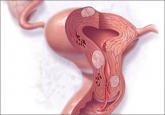Medicolegal Issues
Mother dies after cesarean delivery: $4.5M verdict
Notable judgments and settlements

The next day, she phoned to report vomiting, abdominal pain, and urinary retention. The gynecologist attributed the symptoms to anesthesia and told the patient to allow more time for resolution.
The patient went to an emergency department (ED) 48 hours later with a distended abdomen and severe pain. She was transferred to a regional hospital with acute sepsis. A small bowel perforation was identified, requiring extensive treatment, including hysterectomy and resection of 27 cm of small bowel.
Patient’s claim The gynecologist was negligent in failing to recognize the injury intraoperatively. He didn’t examine the patient when she first reported symptoms.
Physician’s defense The injuries are known risks of the procedure. The patient’s complaints could reasonably be associated with postanesthesia residuals.
Verdict A $5 million Virginia verdict was reduced to $2 million by the statutory cap.
Did nosebleeds cause baby’s disabilities?
After a 33-year-old woman had a nosebleed she noted decreased fetal movement. At the ED, preterm labor was ruled out, fetal monitoring results were normal, and she was discharged. She returned that afternoon with a nosebleed. After 4 hours, when fetal monitoring results were normal, she was again discharged.
The next morning, an otolaryngologist cauterized her right nostril. After another nosebleed, the physician packed the right nasal cavity. She returned with bleeding from the left nostril and remained at the ear, nose, and throat (ENT) clinic for several hours until the bleeding stopped.
The following day, she returned to the ENT clinic asking that the packing be removed, but it needed to remain. She called a covering ObGyn to request anti-anxiety medication because the packing was making her feel claustrophobic.
The next day, after additional nosebleeds, she was taken to the ED with mild contractions. Her hematocrit was 25.6% and her hemoglobin level was 8.8 g/dL. When fetal heart-rate monitoring was nonreassuring, a cesarean delivery was expedited. The child has profound physical and developmental disabilities, uses a feeding tube and ventilator, and needs 24-hour care.
Parents’ claim The mother and fetus were never properly assessed or treated.
Defendants’ defense The physicians denied negligence and disputed the severity of most of the nosebleeds. At each ED presentation, hematocrit and hemoglobin levels were normal and the mother was stable at discharge. When fetal monitoring was performed, the results were normal. When the mother left the ENT clinic after the third visit, she was told to go to the ED or call 911 if she had another nosebleed, which she did not do. When she went to the ED with contractions, staff reacted to fetal distress and performed emergency cesarean delivery.
Verdict A Texas defense verdict was returned.
Difficult neonatal resuscitation: $8.4M
A nuchal cord was discovered at delivery. The child has cerebral palsy, a seizure disorder, and developmental delays. He cannot walk or talk, uses a feeding tube, and requires 24-hour care.
Parents’ claim Monitoring showed fetal distress for 5 hours, but the staff failed to perform a cesarean delivery or have a neonatal resuscitation team ready at delivery. After delivery, the baby was deprived of oxygen for 8 minutes before intubation. A back-up team should have been available.
Medical center’s defense Proper care was given. The resuscitation team was in a surgical suite.
Verdict An $8.4 million Georgia verdict was returned.
These cases were selected by the editors of OBG Management from Medical Malpractice Verdicts, Settlements, & Experts, with permission of the editor, Lewis Laska (www.verdictslaska.com). The information available to the editors about the cases presented here is sometimes incomplete. Moreover, the cases may or may not have merit. Nevertheless, these cases represent the types of clinical situations that typically result in litigation and are meant to illustrate nationwide variation in jury verdicts and awards.
Share your thoughts! Send your Letter to the Editor to rbarbieri@frontlinemedcom.com. Please include your name and the city and state in which you practice.
Notable judgments and settlements

A focus on patient selection for surgical intervention, particularly endometrial ablation
Developing an accurate diagnosis of headache subtype will help avert unnecessary restriction of hormonal methods among your patients who do not...
By arming yourself with knowledge of the most common complications—and their causes—and employing well-chosen surgical strategies, you can lower...
